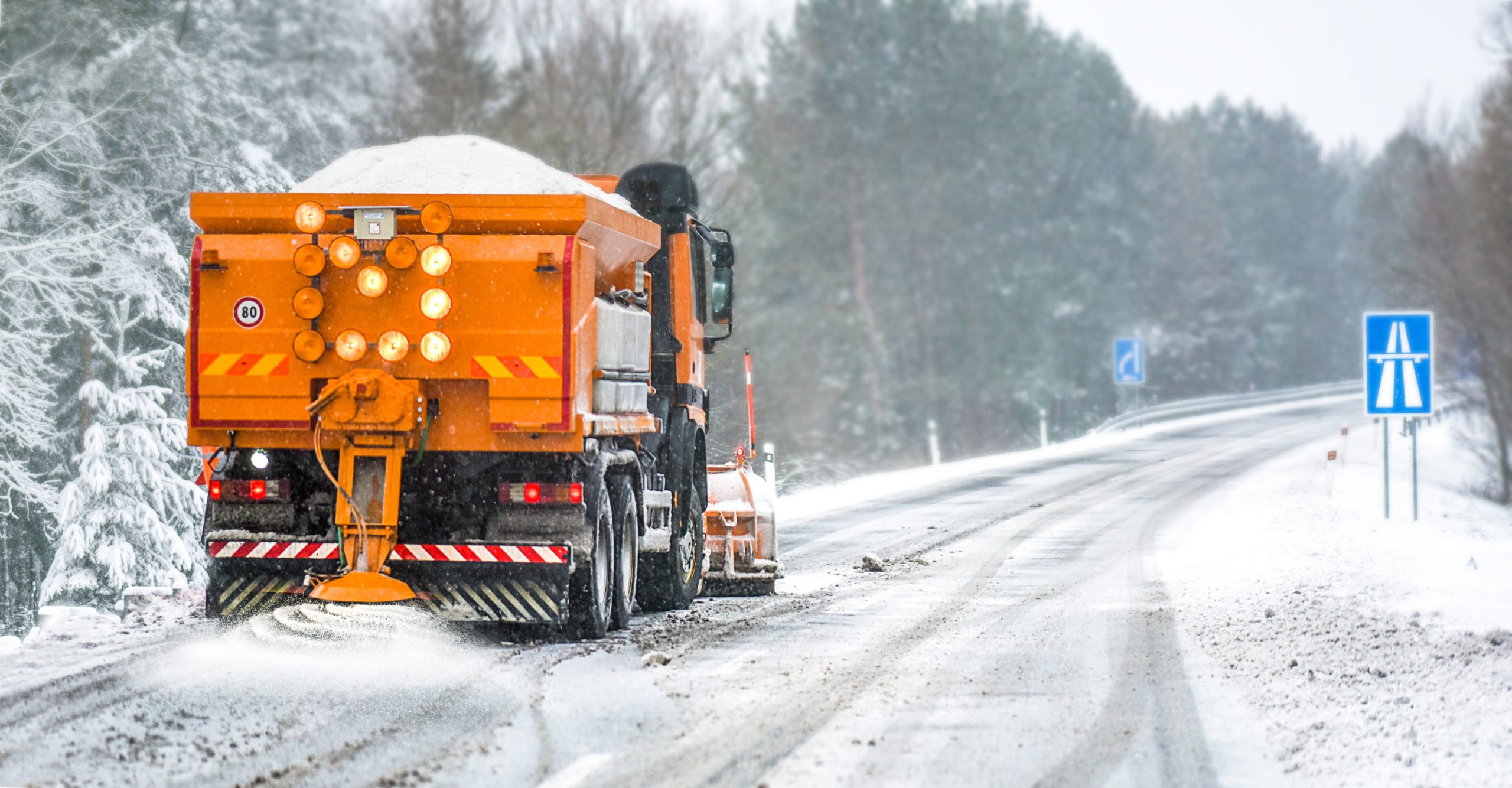Keeping highways and other paved areas clear of ice and snow is taking a toll on the region’s waters.

NEIWPCC is launching a new collaborative to help our member states address chloride contamination in drinking water and surface water, which is caused primarily by application of salt to roads, parking lots, and sidewalks. Household and industrial water softening systems also contribute to this problem.
Some states in the Northeast, such as New Hampshire and Vermont, have been monitoring chloride pollution in their waters for decades. Other states do not have comprehensive chloride monitoring programs in place, but are nonetheless seeing the cumulative effects on their watersheds of millions of tons of road salt applied over the years.
Elevated salt concentrations in drinking water can be harmful to human health. In rivers, lakes, and streams, too much salt can harm the fish, amphibians, and bugs that are adapted to live in freshwater environments.
NEIWPCC has held meetings for environmental staff to share data and strategies their states have taken to reduce road salt use and raise awareness about the issue. While the states in the Northeast have diverse approaches to addressing chloride impairments in their waters, there are many areas of overlapping need. NEIWPCC is exploring several ways to support our states, including by facilitating further discussions for environmental officials, hosting webinar presentations, compiling a resource database, and/or leading a regional education and outreach effort.
Some of the initiatives happening in NEIWPCC member states include:
- The United States Geological Survey is conducting both targeted, local research and long-term trend monitoring to investigate chloride and specific conductivity levels in Connecticut surface waters.
- The University of Rhode Island conducted a study to assess saltwater intrusion into drinking water wells.
- The Massachusetts Department of Transportation is testing out new technology on their trucks to reduce road salt use.
- New Hampshire has a robust Green Snowpro certification program, which teaches municipalities best practices for snow and ice management. Connecticut has begun hosting similar trainings.
- The Sustainable Winter Management program (SWiM), by WIT Advisors, will educate landowners and property managers in Long Creek, Maine about salt contamination.
- New York recently passed the Randy Preston Road Salt Reduction Act, establishing the Adirondack Road Salt Reduction Task Force that will research road salt alternatives to be implemented in a three-year pilot program.
- The Vermont Department of Environmental Conservation is using continuous stream data to investigate the potential for TMDL plans to improve water quality in a chloride-polluted stream.
This story originally appeared in the Spring 2021 issue of the “Interstate Waters” magazine. To learn more or to get involved in NEIWPCC’s regional chloride coordination efforts, contact Christina Stringer at cstringer@neiwpcc.org.